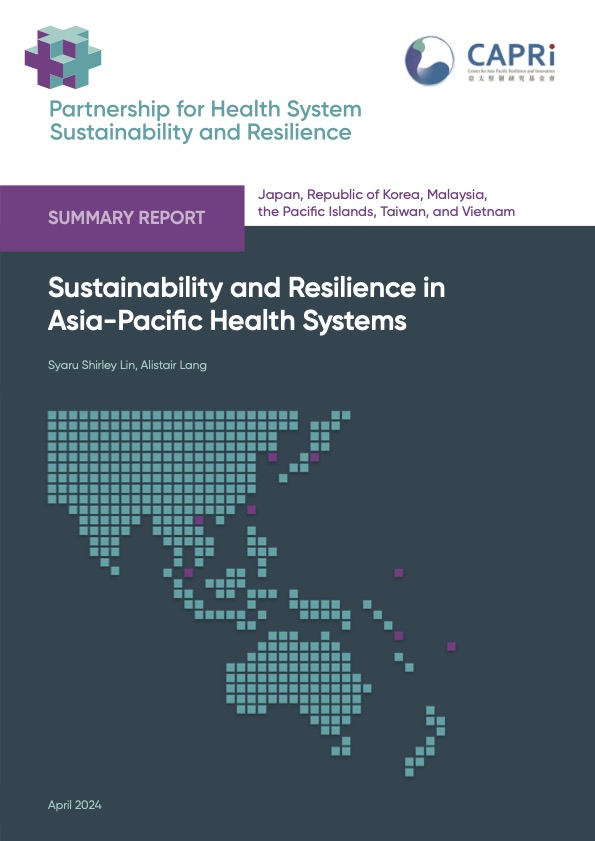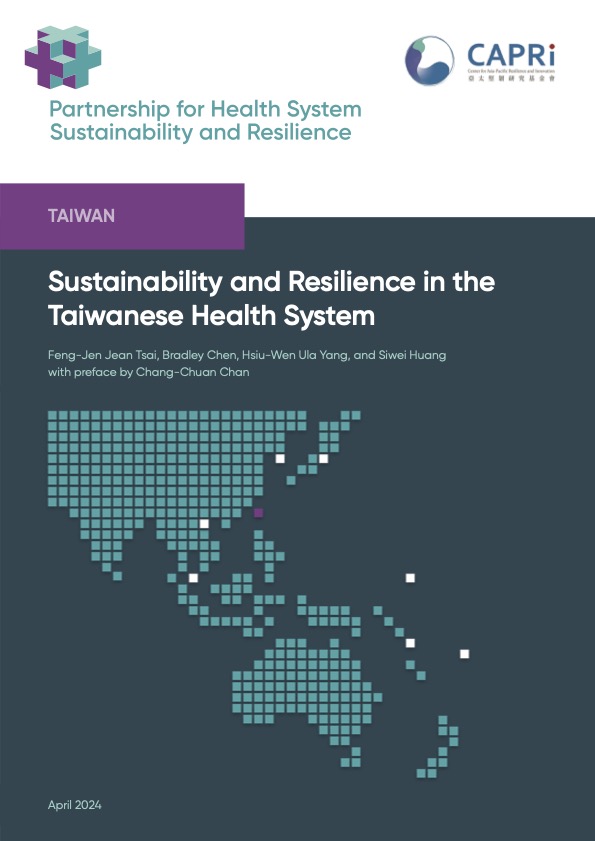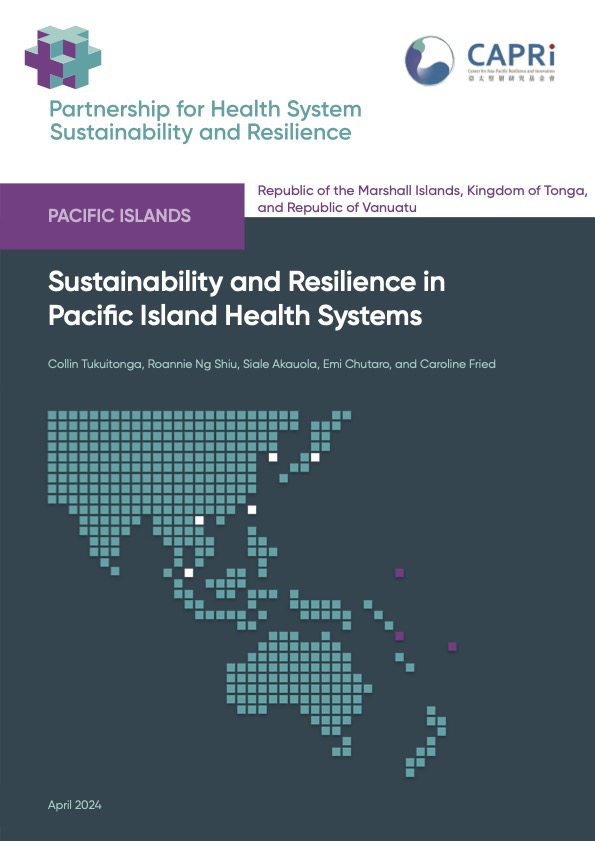PHSSR is an initiative under the World Economic Forum among the London School of Economics, AstraZeneca, Philips, the WHO Foundation, and CAPRI. By collaborating across sectors and borders, PHSSR is committed to building more resilient and sustainable health systems. CAPRI hosts PHSSR’s first regional hub, building on the successes of PHSSR’s research since 2021, to coordinate reports on the sustainability and resilience of health systems in the Asia-Pacific region.

The Partnership for Health System Sustainability and Resilience (PHSSR) has conducted an in-depth examination of health systems in the region, resulting in published country-level reports on Japan, Republic of Korea, Malaysia, the Pacific Islands (with specific attention to the Republic of Marshall Islands, Tonga, and Vanuatu), Taiwan, and Vietnam. CAPRI, serving as the PHSSR’s Asia-Pacific research hub, has spearheaded four of these six reports and produced an Asia-Pacific Summary Report that considers the common issues affecting health systems in the region.



CAPRI has the following research leads:
PHSSR conducts research by using a common framework, which CAPRI has revised and updated for the Asia-Pacific context. This research highlights how health systems have learned from the COVID-19 pandemic. The framework draws upon the WHO’s five building blocks of health systems plus two contextual domains:
PHSSR research is conducted using a common framework, which CAPRI has revised and updated for the Asia-Pacific context and highlight how health systems have learned from the COVID-19 pandemic. The framework draws upon the WHO’s five building blocks of health systems plus two contextual domains:
At the PHSSR 2022 Global Summit, Prof. Syaru Shirley Lin of CAPRI facilitated a panel on “Future-proofing healthcare systems through data and digitalization.” The discussion included leading experts from academia, government, and the private sector exploring different avenues to enhance the resilience of healthcare systems worldwide by using data and technology.
CAPRI joined the World Economic Forum affiliate session “Collaborating to Build Resilient and Sustainable Health Systems” on May 25, 2022, in Davos. From the need for economic prioritization of health infrastructure to the importance and contributions of the Asia Pacific in global supply chains and global resilience, Prof. Syaru Shirley Lin of CAPRI joined with Prof. José Manuel Barroso, Chair of the Board of Gavi, the Vaccine Alliance; Frans van Houten, Chief Executive Officer of Philips; Leif Johansson, Chair of AstraZeneca; and Dr. Emanuele Capobianco, Chief Strategy and Impact Officer of WHO Foundation, to discuss the complex factors that influence global healthcare preparedness.
The Asia-Pacific Hub of Reform for Resilience Commission (R4R) housed at CAPRI took part in the Healthcare System Resilience Summit at World Expo 2020 in Dubai. R4R co-chairs José Manuel Barroso and Malcolm Turnbull, commissioners Chen Chien-jen and Stan Shih, and APAC Hub advisory board chair Chang-Chuan Chan delivered remarks during the Keynote Session and PHSSR Launch session on January 31, 2022.